About
Table of Contents
© Barbara Wolfram 2022
About the project
In relation to many recent literary works that move around the format of literary autosociobiography (A. Ernaux, 2017; D. Eribon, 2016; J.D. Vance, 2017) – an autobiography written in regard to and contextualised within the frame of social class and larger historical developments – Confronting Realities asks from an art practical and theoretical point of view how the format of cinematic autosociobiographies can be explored, described and produced, especially focusing on the fundamentally collaborative character of filmmaking. The projects’ main objective is the art practical and theoretical exploration, description and production of cinematic autosociobiographies.
The project is designed on four levels: Level (1) of Autosociobiographical Exploration that will create three exploration groups over the course of two months embedded in half year cycles – the “Laboratory of cinematic autosociobiographies” (LAFA). LAFA tries to probe, explore and search, to make accessible and to contextualize one’s biography from an art-based perspective. Level (2) of Cinematic Forms and Techniques intends to develop and create narratives and cinematic techniques of cinematic (auto)sociobiographies and translating them into cinematic formats. Level (3) of Interdisciplinary and Theoretical Contextualization wishes to build a strong foundation and interconnection between art-based, theoretical and interdisciplinary research about sociobiographies, cinematic forms and collaborative strategies of art production. Level (4) of Reflection and Evaluation intends to build a reflective framework around the project. During all these stages the “Digital Archive of Cinematic Autosociobiographies” (DAFA), a website-based representation and documentation platform, will ensure an ongoing dissemination and documentation of the project.
Lab Barbara Wolfram
Labor für filmische Autosoziobiografien (LAFA) Barbara Wolfram
Lab Nina Kusturica
Labor für filmische Autosoziobiografien (LAFA) Nina Kusturica
Improvisation LAFA/Fathers by Barbara Wolfram.
Cinematic (Auto)sociobiographies
In times of a worldwide shift to the right marked by a rise in nationalism and populism, the question of social classes and its cultural, economic and political changes has once again become topical.
In this context, a series of books in which the authors develop new forms of autobiography have been widely read and discussed, books in which the authors tell the story of their social origins and relate these to larger social and historical developments: examples include Retour à Reims by Didier Éribon (Éribon 2016), En Finir avec Eddy Bellegueule by Édouard Louis (Louis 2019), Les Années by Annie Ernaux (Ernaux 2017), Hillbilly Elegy by J. D. Vance (Vance 2017) or, just recently, Ein Mann seiner Klasse by Christian Baron (Baron 2020). In referring to works such as these, literary criticism makes use of a newly coined generic term: “autosociobiography” (cf. Spoerhase 2017).
Unlike experimental autofictions and conventional autobiographies, autosociobiographies are characterized by the special way in which the individual’s personal story is combined with a sociopolitical or even an explicitly sociological perspective. What is individual and personal is placed in a general context, one that is also historical and political; questions of social origins, class, milieu and habitus acquire central importance. Autosociobiographies, as defined by the French sociologist Chantal Jaquet, are accounts that “endeavour to consider an individual’s life or destiny as a social product in relation to his or her milieu, not as an emergence of a self that is cut off from all exterior determination” (Jaquet 2018, 15).
New lines of tension and conflict as well as hegemonic processes and the associated dynamics of social descent and ascent, combined with psychological and psycho-physical changes in the individual, the cultural logic of lifestyle and the resulting polarization effects, are part of current research (to name a few: Christophe Guilluy, David Goodhart, Ariel R. Hochschild or Andreas Reckwitz). In connection to these perspectives, the project Confronting Realities: Working on Cinematic Autosociobiographies poses the question: What possible cinematic forms and techniques can be found for grappling with questions of social origins, class relations and class antagonisms? The aim is to investigate, indeed to explore a new cinematic format as a tool to address class relations, questioning the mechanisms of social segregation and exclusion. The ultimate goal is to explore cinematic autosociobiographies as a means of producing and reflecting a specific art-based knowledge dealing with privileges, class-related discourses and its multidimensional inscriptions into the individual.
What possible cinematic forms and techniques can be found for grappling with questions of social origins, class relations and class antagonisms?
There are a whole range of questions that are sparked off by the autosociobiographical narratives of Éribon and others – and precisely this is the starting point for Confronting Realities. The project’s basic hypothesis is that cinema as an art form has the ability to capture aspects and dynamics that cannot be captured in literature let alone in academic research. Film is a multidimensional medium, reflecting on the body, its movement and its rootedness in and connection to the world. As a mass medium (cf. Luhmann 2017) that is able to record a specific time in history that is mutually perceived as reality, film is perfectly suited to explore and reflect the discourses of the individual interacting with the world and vice versa (cf. Waugh 2011). Furthermore, filmmaking is a fundamentally collaborative endeavour. Unlike the individual authorship of literary texts, every film production invariably and necessarily involves many people. Confronting Realities sets out to prove how diverse autosociobiographical narratives can be, to expand the material basis involved, to create a plurality of perspectives and stories and to make it possible for these to be seen and heard by a wider public.
Artistic Research
The cornerstone of our methodology is the artistic process of filmmaking as well as the collaborative exploration of individual autosociobiographies as an art-based instrument of knowledge creation.
The findings of the artistic process are theoretically recontextualized with regard to perspectives of film studies and cultural studies in order to sharpen the contours of the new format and to make it possible to describe and analyse its poetic and aesthetic character as well as the manifestations of political, social, economic and cultural realities on the individual. Pursuing this aim requires, indispensably, an interdisciplinary and cross-disciplinary approach, an “indisciplinary practice” (Rancière 2006) that is open and able to draw on and interrelate insights from various contexts of knowledge.
Confronting Realities is distinctly conceived as an art-based research project that seeks to explore and devise a new format, a project in which the artistic process as well as artistic production and practice are seen as fundamental means of gaining knowledge (cf. Bippus 2009 and Badura 2015). It thus sets out to probe questions of social class and origins by means of, in the process of and with the help of practical artistic work (cf. Borgdorff 2006), in other words, through the experimental artistic production of cinematic autosociobiographies. Accordingly, the project views filmmaking as an epistemic practice (cf. Engell 2010, Pantenburg 2006) that both generates knowledge and holds out the promise of providing more insight on the repercussions of the current political and social state of affairs as well as class-related discourses on the individual.
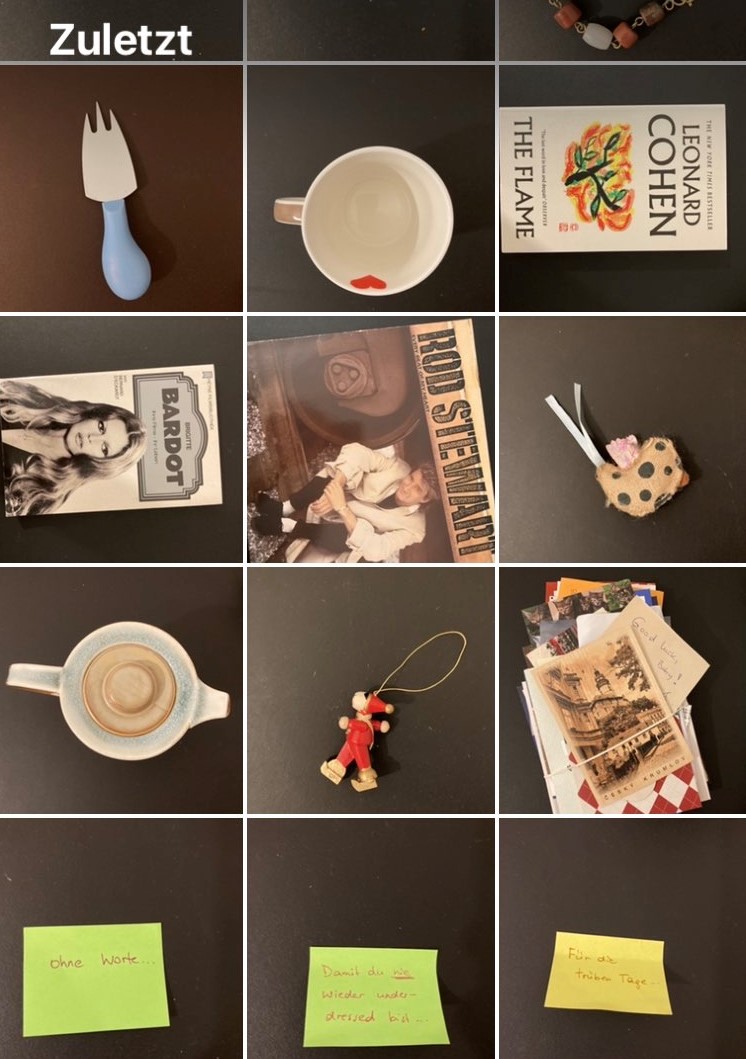
Improvisation LAFA/Mothers "Katalog" by Christina Wintersteiger-Wilplinger.
Team
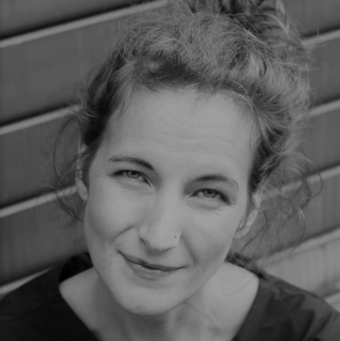
Camilla Henrich (Doctor phil.)
studied theater, film and media studies at the University of Vienna. Her research focused on artistic activism, independent theater and socio-cultural centers. In her dissertation on the Dramatische Zentrum Wien, she conducted basic research and organized the holdings in the archive. After graduating in 2017, she worked in the free theater scene and dealt with emancipatory theater forms for young audiences as well as with the question of what potential performing art holds. In the course of her research, she conducted research stays in NYC, worked as a project assistant (DOC-Stipendium der ÖAW) at the University of Vienna and in various research projects funded by the city of Vienna. In recent years she has worked for ASSITEJ Austria, Theatermuseum Wien, WUK und Theater ANSICHT in the areas of communication, production and organization.
↳ scientific researcher (maternity leave cover)
↳ dissemination, data management, curating the DAFA/website
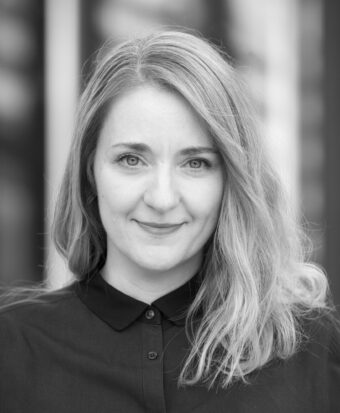
Nina Kusturica (MA)
is a film director, film editor, author and producer; she studied directing and editing in the class of Peter Patzak at the Film Academy Vienna. Born in Mostar, raised in Sarajevo, she is living and working in Vienna. Within the scope of her film production company Nina Kusturica Projects, she has produced numerous films for the big screen; with her own feature and documentary films Ciao Chérie (2017), Little Alien (2009), Auswege (2003), 24 Wirklichkeiten in der Sekunde – Michael Haneke im Film (2004), Draga Ljiljana (2000) as well as the short films Der Freiheit (2001) and Wishes (1999). She has participated in and won awards at numerous film festivals, which include: the Berlinale Forum des Jungen Films, Mar del Plata, Rotterdam, Max Ophüls Preis, Duisburger Filmwoche, Premiers Plans Festival d’Angers, Mostra Internacional de Cinema Sao Paulo, Mumbai Film Festival, Cinema Jove Valencia, Leeds Film Festival and many others. Her films have had monographic showings in Cairo and Vienna, and they have been shown within the context of Austrian film weeks organized in the USA, Chile, Mexico, France, Russia, Great Britain, Bosnia-Herzegovina, Turkey, Poland, Italy and Germany. Alongside her work in film, Nina Kusturica has also done work in stage directing and has given seminars, workshops and lectures on film, directing and acting at various universities, both in Austria and internationally. In the context of Confronting Realities, as a distinguished filmmaker she will supervise all aspects relative to film aesthetics and the practical aspects of production, work that she will be able to connect to the work she has done to date dealing with the question of the portrayal of society by means of film and the cultivation of the cinematic eye.
↳ artistic-scientific researcher/investigator, LAFA head researcher
↳ supervising aspects relative to film aesthetics and the practical aspects of production, exploration and creation process within the LAFA

Elena Meilicke (MA, Doctor phil.)
is a lecturer/researcher (PostDoc) in media studies at Berlin University of the Arts. She studied modern German literature, Cultural Studies and Chinese in Berlin, Vienna and Los Angeles, graduating with honors, after which she obtained her doctorate (summa cum laude) in Berlin, concentrating on media cultural studies (published as „Paranoia und technisches Bild. Fallstudien zu einer Medienpathologie”, Berlin 2021). Among the areas on which her work centers are: media and culture of resilience, media and gender, the aesthetics of contemporary film and TV serials, forms of the documentary, as well as the history, theory and practice of film criticism. In 2017, in her capacity as film critic, she was awarded the Siegfried-Kracauer-Preis for film criticism; her essays on film and media have been published in journals such as “Cargo”, “Texte zur Kunst” as well as “Merkur”.
↳ scientific researcher
↳ ensuring a recursive process of interrelating practical artistic research as well as theoretical and scholarly reflection
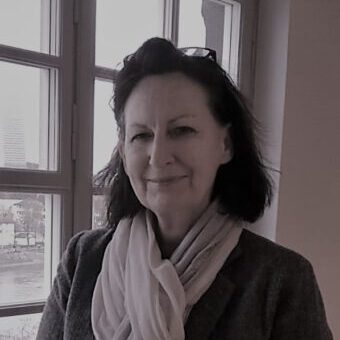
Prof. Claudia Walkensteiner-Preschl (PhD)
is Professor of Media and Film Studies at the Institute for Film and Television – Film Academy Vienna / mdw – University of Music and Performing Arts Vienna and was head of the institute from 2013 to 2019. After studying in Vienna in the fields of theatre, psychology, linguistics and musicology, she obtained her doctoral degree, writing her thesis on the “Gesamtkunstwerk”; in 2010, she obtained her qualification as a professor (Habilitation) with a thesis on the topic “Lachende Körper: Komikerinnen im Kino der 1910er Jahre” (“Laughing Bodies: Female Comic Actresses in the Films of the 1910s”). Among her research focuses are feminist film historiography, media and film theory, gender studies as well as artistic research. She has taught at various institutions of higher learning, which include the University Vienna, the University of Applied Arts, the Friedrich-Schiller-University Jena as well as the Academy of Fine Arts Vienna. She has published extensively and has conceived various artistic/academic projects at the intersection of film theory and artistic practice. She is co-editor of two book series.
↳ project leader
↳ ensuring a recursive process of interlinking practical artistic research and theoretical/scholarly reflection
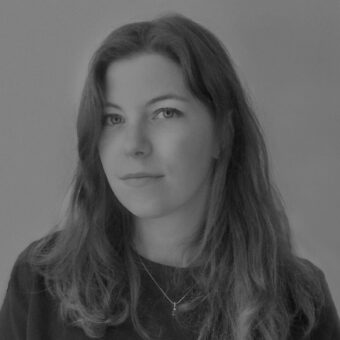
Christina Wintersteiger-Wilplinger (MA BA BA)
is a film and literary scholar with a focus on queer film theory and monster studies. In her scholarly work, specifically in the context of her dissertation at the Film Academy Vienna, and in her ongoing education as a psychotherapist, she has concerned herself in depth with reflection on social and cultural environments and their inscriptions in the individual. She has worked and was co-PI in numerous academic and artistic research projects. She works as an author, editor and curator as well as consultant in the office of artistic management/festival office of the Film Academy Vienna.
↳ scientific researcher (currently on maternity leave)
↳ conceiving and curating the DAFA
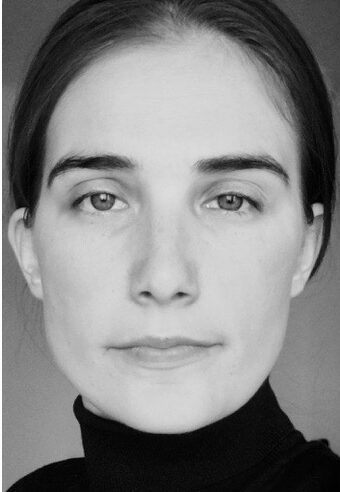
Barbara Wolfram (PhD, MSc)
holds a PhD from the Film Academy Vienna/ mdw and a Master’s degree in Psychology from the University of Vienna. In her dissertation she was quantitatively researching about on-Screen representations of Gender and Diversity in Austrian Feature Films. In her PostDoc she co-leads the Artistic Research Project Building Bridges in Polarized Societies by means of Art and Research. Film – Wien – ArbeiterInnenmileu- Rechtspopulismus funded by the City of Vienna (MA7) where she and Paulus Wagner research about the consolidating effect of the medium film in polarized societies. In her second PostDoc project Barbara researches on Cinematic Autosociobiographies in the PEEK project (FWF): Confronting Realities. Working on Cinematic Autosociobiographies.
Barbara has conducted international research and study stays at the École des Hautes Études en Sciences Sociales (EHESS), Paris, at the film school ENS Louis-Lumière, Paris and at the Guildhall School of Music and Drama in London. In addition to her academic work, she is a theatre and film director and artistic director of the international theatre company .EVOLve, which she co-founded (including Volkstheater Wien, Schauspielhaus Wien). On the side, Barbara podcasts with Bianca J. Rauch about Gender and Diversity portrayal and Representation in their film studies podcast Ned wuascht – wir geh’n fisch’n and is politically active at KILL the TRAUERspiel, an initiative that works for more gender justice and diversity on Austrian stages.
Her work is characterized in a fundamental way by an approach that combines artistic and scholarly perspectives. Her artistic and scholarly interests are marked by a desire to find alternative formats for development and norm bending forms of representation; by considerations related to form and aesthetics in artistic production; as well as by the constant determination to incorporate knowledge gained from artistic practice into theory and vice versa.
↳ artistic-scientific researcher/investigator, LAFA head researcher
↳ supervising aspects relative to film aesthetics and the practical aspects of production, exploration and creation process within the LAFA
The project is hosted by The Institute for Film and Television – Film Academy Vienna / mdw – University of Music and Performing Arts Vienna and is financed by the FWF (FWF PEEK, AR 628).
Project Proposal by Barbara Wolfram, Nina Kusturica, Elena Meilicke, Christina Wintersteiger-Wilplinger and Claudia Walkensteiner-Preschl.


